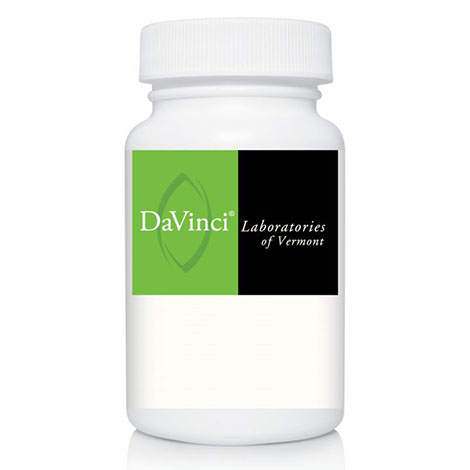Discover the Secret to Food Digestion and Immunity With Intestine Wellness Assistance

Comprehending Digestive Tract Wellness
Understanding digestive tract wellness is critical for overall health, as it plays a considerable duty in digestion, immunity, and even psychological wellness. The gut, comprising the stomach tract, is liable for damaging down food, soaking up nutrients, and expelling waste. A balanced intestine atmosphere makes certain reliable food digestion, permitting the body to make use of nutrients effectively.
In addition, gut wellness considerably impacts the body immune system. The intestine houses a considerable portion of the body's immune cells, and a healthy and balanced gut can help ward off pathogens and decrease inflammation. Interruptions in gut health can result in an over active immune reaction, possibly adding to autoimmune problems and allergies.
In addition, the gut is frequently referred to as the "2nd brain" because of the gut-brain axis, a complex communication network connecting the brain and the intestine. This link affects state of mind, cognition, and psychological health. Concerns such as dysbiosis, defined by a discrepancy in intestine microorganisms, have actually been related to psychological health and wellness conditions, consisting of stress and anxiety and anxiety.
The Digestive Tract Microbiome Explained

The digestive tract microbiome, a diverse community of microorganisms residing in the stomach system, plays an essential function in preserving gastrointestinal health and overall health. Consisting of trillions of germs, viruses, fungis, and various other microorganisms, this complex ecosystem help in the food digestion of food, the synthesis of vital nutrients, and the policy of metabolic processes.
Each individual's intestine microbiome is special, influenced by elements such as diet, way of life, genes, and environmental direct exposures. A balanced microbiome sustains optimal digestion by damaging down complicated carbs, creating short-chain fatty acids, and promoting the absorption of nutrients. Conversely, an imbalance, usually referred to as dysbiosis, can lead to digestion disorders, consisting of short-tempered digestive tract syndrome (IBS) and inflammatory digestive tract disease (IBD)
Study has shown that a varied microbiome is associated with far better health and wellness end results, underscoring the relevance of dietary choices in supporting these microorganisms. Foods rich in fiber, probiotics, and prebiotics, such as fruits, veggies, and fermented products, can promote a healthy and balanced microbiome. Comprehending the gut microbiome is crucial for developing targeted interventions intended at improving digestive health and wellness and avoiding stomach diseases.

Connection In Between Digestion and Resistance
A robust link exists between food digestion and immunity, highlighting the critical role of the gut in keeping total health. The intestinal system is home to trillions of bacteria that form the intestine microbiome, which substantially influences both digestion processes and immune actions. This complicated ecological community aids in damaging down food, taking in nutrients, and giving vital metabolites that sustain immune feature.
When digestion is efficient, the gut obstacle continues to be undamaged, stopping unsafe virus from getting in the blood stream. Roughly 70% of the immune system lives in the gut-associated lymphoid tissue (GALT), which interacts very closely with the intestine microbiome.
Tips for Sustaining Digestive Tract Health
Sustaining digestive tract health is essential for preserving both gastrointestinal performance and a well-functioning body immune system. To foster optimum digestive tract health, take into consideration including a number of practical approaches into your day-to-day routine.
First, focus on hydration. Consuming ample water supports food digestion and assists keep the mucosal lining of the intestinal tracts. Additionally, routine exercise can improve gut motility and advertise a diverse microbiome.
Conscious eating techniques are likewise crucial. Chewing food extensively and eating slowly can assist digestion and stop over-eating, which may worry the intestine. Additionally, taking care of stress with strategies such as meditation, yoga, or deep-breathing workouts can favorably influence digestive tract wellness, as stress is understood to interrupt digestive system processes.
Incorporating prebiotics and probiotics right into your regimen is another efficient technique. While details foods will certainly be discussed later, pop over to this web-site understanding the significance of these elements is vital. Prebiotics work as food for valuable gut bacteria, while probiotics present real-time beneficial organisms.
Lastly, avoid excessive use anti-biotics, as they can interfere with the equilibrium of intestine plants. By complying with these ideas, you can substantially add to the maintenance of a healthy gut, which is essential for total wellness and vigor.
Foods That Promote Digestive Tract Wellness

Fermented foods, such as yogurt, kimchi, kefir, and sauerkraut, i loved this are rich in probiotics, which are useful germs that support gut flora and boost food digestion. These foods can aid bring back balance in the intestine, particularly after antibiotic usage or digestive system disruptions.
In enhancement to fermented choices, prebiotic foods, such as garlic, onions, asparagus, and bananas, act as nourishment for these probiotics, advertising their development and activity. These soluble fibers support intestine mobility and can minimize issues like constipation.
Moreover, including high-fiber foods, including whole grains, vegetables, fruits, and beans, is necessary for preserving a healthy intestine. Fiber aids in normal bowel movements and aids avoid digestive problems.
Lastly, omega-3 fats found in fatty fish, flaxseeds, and walnuts have anti-inflammatory properties that can better support intestine health. Stressing these foods in your diet plan can bring about a robust digestion system and enhanced immune feature.
Conclusion
In verdict, prioritizing gut health and wellness is crucial for optimizing digestion and improving immunity. A balanced digestive tract microbiome, affected by dietary choices and lifestyle elements, plays a vital duty in nutrient absorption and swelling decrease.
Recognizing gut health is essential for overall wellness, as it plays a considerable function in digestion, immunity, and even mental health. The gut houses a substantial section of the body's immune cells, and a healthy and balanced intestine can aid fend off virus and minimize swelling.Furthermore, the digestive tract is frequently referred to as the "second brain" due to the gut-brain axis, an intricate interaction network connecting the brain and the intestine.A durable connection exists between digestion and immunity, highlighting the essential role of the intestine in keeping general health.In conclusion, focusing on Learn More Here digestive tract health is important for maximizing food digestion and improving immunity.